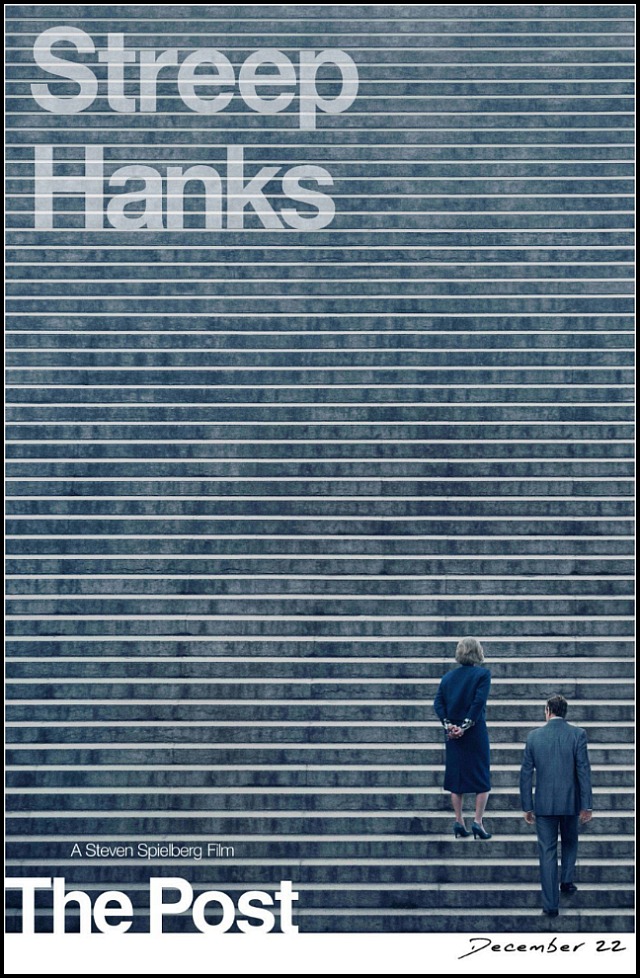A truly impressive one-sheet. The steps, one presumes, are an impressionistic rendition of the steps outside the U.S. Supreme Court building, where the New York Times & Washington Post vs. Nixon administration dispute over the Pentagon Papers was decided on 6.30.71. The size and steepness of the steps appear to have been exaggerated for dramatic effect.

The most exciting comment in yesterday’s thread about the Post trailer was “Reverent and free” expressing relief that it appears to be “more [of] an ensemble thing than the Meryl Streep Show…they actually underplayed her in the trailer, giving her no big lines.” A trailer rarely represents the film it’s selling, but here’s hoping that an “emphasis on ensemble’ dynamic manifests in the film itself.
I know nothing about The Post in its finished form, but if I wanted to imagine a concern it would be this: On paper, the story is essentially a smarthouse movie that should have been ideally directed by someone with a highly focused attention to nuance and brainy journalistic asides and richly summoned atmosphere and period detail a la Mindhunter. Someone like David Fincher or Tony Gilroy, I’m thinking, who could really put us into that fascinating 1971 head space, someone who would just trust in the characters and the dialogue without trying to put that Spielberg stamp all over it.
The concern, in short, is that there may be a conflict between the material and that trademark Spielberg stamp. Maybe. Who knows?
I mentioned this to a younger guy this morning, and he responded as follows: “Wow — I was having this exact conversation last night with a friend. I mentioned Fincher and Gilroy. If you ask me the Spielberg stamp is a boring one, and I don’t understand the draw to The Pentagon Papers, especially in a time when we have our own papers (Panama, Paradise) to be worried about. Everybody that was alive and working during that time is long retired. The saga of the Vietnam War has been told and retold. On top of which you have to wonder about the film having been rushed from beginning to end, and what effect that might have on the finished product.”
HE response: Sometimes a film that’s been “rushed” through principal photography and editing can benefit as it may feel more direct and instinctual, and may escape that vibe of seeming overly ponderous or thought-out.












